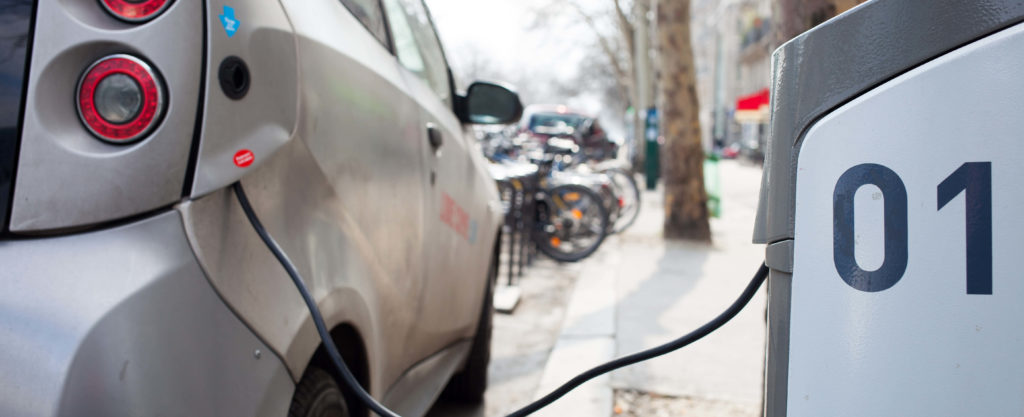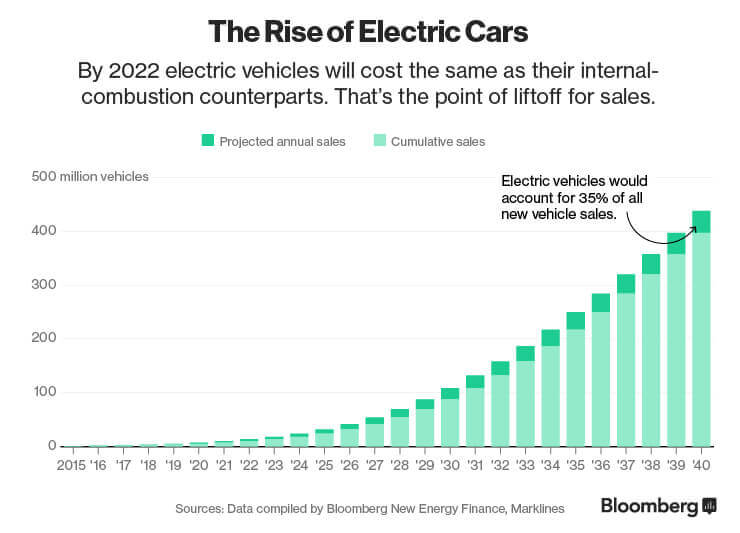
Bloomberg News is calling it: the 2020s will be the decade of the electric vehicle.
Bloomberg New Energy Finance released a new analysis last week showing that sales of electric vehicles (EVs) are on the rise and could wreck oil markets within the next 10 years.
Batteries account for about 30 per cent of the cost of building EVs. Last year alone, battery prices fell 35 per cent and are on track to make unsubsidized EVs as affordable as gas-guzzlers in the next six years, according to Bloomberg’s analysis. “That will be the start of a real mass-market liftoff for electric cars,” the news agency reports.
Bloomberg also looked at the projected rise of EVs in the first installment of its new animated web series Sooner Than You Think, which examines some of the biggest transformations in human history that haven’t happened yet.
Here’s more on what they had to said about where the electric car industry is headed.
Many large tech companies and nearly every major carmaker is getting behind electric cars. Ford, Volkswagen, Nissan, BMW — even Apple and Google — are looking into how they can make the next generation of plug-in vehicles. Tesla and Chevy plan to sell electric cars in the next few years that hold a range of 200 miles (roughly 320 kilometres) and are priced around $30,000 US. Talk about a game-changer.
This is not something oil markets like to hear. Bloomberg says the oil price crash that started in 2014 was caused by a surplus of unwanted oil, with companies producing about 2 million barrels a day more than what the market needed.

Last year, despite low gasoline prices, electric car sales jumped 60 percent worldwide. If this level of growth continues, Bloomberg predicts the crash-triggering benchmark of 2 million barrels of reduced demand as a result of EVs could come as early as 2023. Projections show that by 2020, many electric vehicle models will cost less than their gasoline counterparts, and Bloomberg estimates that half the world’s new car purchases will have plug-ins by 2040.
Of course with all this talk of electric cars, one might ask where we’ll get all this electricity to run them. Well, Bloomberg has more good news, reporting that, since 2013, the world has added more clean energy generating capacity (from solar, wind, etc.) than energy from coal, natural gas and oil combined.
However, for electric vehicles to achieve widespread adoption, Bloomberg says one of the following four things must happen: government can offer incentives to lower the cost; manufacturers must follow through on bringing down the price of EVs; customers must be willing to pay more to drive electric; or, the cost of batteries must continue to come down. Fortunately, Bloomberg notes these things are already happening.
The time for electric vehicles is coming, indeed — sooner than we think.


